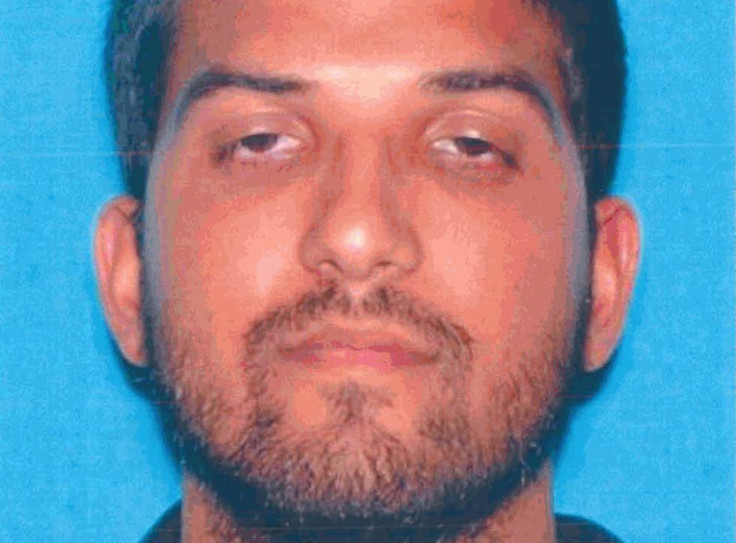Can Radical Islam Be Prevented? San Bernardino Shooting Puts Spotlight On ‘Countering Violent Extremism’ Efforts In US

Now that the FBI has deemed last week’s mass shooting in San Bernardino, California, an act of terrorism, new questions are arising about how perpetrators Syed Rizwan Farook and his wife, Tashfeen Malik, may have been radicalized, and whether anything could have prevented it. Those questions are at the heart of government-led programs called Countering Violent Extremism (CVE) in the United States, which aim to prevent individuals from being swayed by extremist ideologies.
Such efforts have gained traction in recent years, but Muslim community leaders often don’t agree on how to implement them, or even if they should be implemented at all.
“Domestic CVE efforts are in the nascent stages,” said Seamus Hughes, deputy director of the Program on Extremism at George Washington University’s Center for Cyber and Homeland Security. “The administration has not put serious resources behind this effort, and the community partners are all doing it on a shoestring budget.”
While many European countries have long had CVE efforts in place, the U.S. government only officially launched a CVE strategy in 2011, and that strategy went through a rocky implementation process due to lack of resources and focus. It gained greater attention earlier this year when the Obama administration held a high-profile “White House Summit on Countering Violent Extremism” that brought together local, federal and international leaders to discuss steps communities can take to counter radicalization. The government worked with three cities -- Boston, Los Angeles and Minneapolis -- to create pilot programs that foster partnerships between local governments, law enforcement, local Muslim communities and more.
'Surveillance States'
But some Muslim communities and civil rights organizations argue that such efforts led by the government are not effective at reducing violence -- and often infringe on the rights of Muslim-Americans by essentially creating “surveillance states” within Muslim communities.
Critics were most vocal after a House bill introduced by U.S. Rep. Michael McCaul, R-Texas, proposed the creation of a CVE office within the Department of Homeland Security. Some 42 civil rights organizations, including the American Civil Liberties Union, the Council on American-Islamic Relations and the Brennan Center for Justice at NYU School of Law, signed an open letter in July decrying the bill as a threat to “freedom of speech, association and religion” if passed.
Rabiah Ahmed, a spokeswoman for the Muslim Public Affairs Council (MPAC), one of the signatories of the letter, said that government-led CVE programs are simply not effective. “When it comes to intervention and prevention, CVE needs to be community-led. When a person crosses the point of no return, that’s when law enforcement agencies need to take over,” Ahmed said.
MPAC has created its own CVE module that Muslim communities can implement called “Safe Spaces.”
“It’s a toolkit that provides a model for mosques and communities to implement when tackling violent extremism, based on prevention and intervention,” said Ahmed, adding that several mosques around the country, including her own in northern Virginia, have implemented MPAC’s strategies.
But Ahmed added that it can be difficult to reach those who are at risk for radicalization, because they often pull away from their communities at large, as they don’t easily find sympathy for their views. “That poses a challenge to us [Muslim-Americans] because they are out of our reach,” she said.
In the end, though, it's difficult to know whether these efforts are having any effect on radicalization. “The most difficult question when you talk about prevention is: how do you prove the negative on these things?” said Hughes.
See Something, Say Something?
Another challenge, said Hughes, is that most local communities don’t know how to proceed when they notice that there might be a problem with a community member who is heading down a trajectory toward radicalization. Even if such a person does pull away from the community, “there’s usually a friend or family member who saw something concerning, but didn’t know how to respond.”
There’s also the legitimate fear that alerting the authorities will send a person to prison or worse.
“There’s only a subset of people you should arrest,” said Hughes. “But there is a subset of people you can reach. So we need a viable third way that’s not just calling your local FBI or ignoring the situation. We need programs where you can say, ‘I’m concerned about my loved one’ and talk to mental health professionals, social workers, religious leaders.”
Rabia Chaudry, an attorney and national security fellow at the New America Foundation, has worked as a CVE consultant and says that many Muslim communities in the U.S. have shut down the conversation on CVE out of legitimate concerns about civil rights and marginalization.
“What is the right balance for Muslim leadership to strike? We haven’t even been able to have these conversations because it’s been made into such a controversial issue by anti-CVE activists within the community,” said Chaudry.
But she adds that extremists can reach teenage Muslims in seconds via social media and the Internet, and that Muslim communities need to get their heads out of the sand. It’s up to the community itself, she says, to develop the “third way” that Hughes describes.
“This is one of the greatest failures of our Muslim leadership. They have failed to create a viable alternative beyond straight prosecution because we don’t allow, much less take the lead on, these conversations,” said Chaudry. “We should go head to head on these issues with local leaders and government. You want us to engage on CVE? Then promise us that if our community leaders engage on these issues, create off-ramps and interventions, they’re not going to go to jail. They won't get caught up in a terror probe or the target of bigotry. We need to take these demands to the government as a community. The government is not going to do it.”
© Copyright IBTimes 2024. All rights reserved.





















